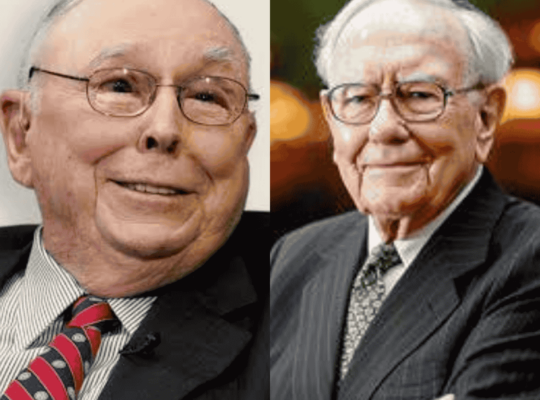
Have you ever read about a famous athlete’s training routine and thought, “If I follow their steps, maybe I can run as fast as they do?” In the world of investing, many people have a similar thought: if they mimic the moves of the experts, they might achieve the same level of success. This idea of copying fund managers has grown in popularity over time, driven by the belief that following the best can lead to better results. After all, relying on those with more experience is a habit that goes back centuries.
In 1675, Sir Isaac Newton wrote, “If I have seen further, it is by standing on the shoulders of giants.” Newton acknowledged that progress often comes from building on the work of others. The same mindset applies when investors try copying fund managers—they hope to benefit from the wisdom and track record of seasoned professionals.
Just as athletes study the routines of champions, many investors closely follow the moves of top fund managers. They examine fund portfolios, read expert interviews, and monitor every trade. This approach—copying fund managers—seems logical, but does it actually lead to better returns? The market is unpredictable and doesn’t follow strict rules. Even Albert Einstein, who explained the mysteries of the universe, lost money during the 1929 stock market crash.
In this article, we’ll take a closer look at the concept of copying fund managers. We’ll explore why so many people are drawn to this strategy, when it might work, the risks involved, and how to do it wisely. Through real-life examples and simple explanations, we’ll help you decide whether copying fund managers is the right approach for you—and how to make the most of it if you choose to follow that path.
Table of Contents
Why we follow Experts
At its core, imitation investing comes down to trust. We trust experts in many areas of life. When we choose a doctor, we believe their years of study and experience will lead to better health outcomes. When we trust a teacher, we expect them to guide our learning. And when a dentist tells us which toothpaste to use, their recommendation carries weight, sometimes even if it’s just marketing claiming “9 out of 10 dentists recommend Brand X.”
Investors see fund managers in a similar light. These professionals have spent years poring over company reports, talking to executives, and analysing economic trends. It feels natural to think that, if nine out of ten fund managers are buying a certain stock, they must see something special. Why not join them?
But there is more than just simple trust at play. Let’s break down the main reasons investors try to mirror the moves of big-money managers:
1. Financial Athletes on the Track
Imagine running a footrace. Most of us have raced friends or classmates, but only a few have competed at the national level. In the world of investing, fund managers are like elite athletes. Their full-time job is to spot promising companies, analyse balance sheets, and anticipate market trends. They have honed their skills over many years, just as top runners train day in and day out. By the time a small investor hears about a hot stock, a skilled fund manager may already have done the heavy lifting and positioned their fund ahead of the crowd.
2. Access to Better Information

Knowledge is power in investing. Institutional investors often have advantages that everyday retail investors lack. They can visit company headquarters, get direct access to management teams, and subscribe to premium research services. They also have entire staffs dedicated to gathering and interpreting data around the clock. For an individual investor juggling a day job and personal life, matching that level of research is nearly impossible. Imitating a fund manager’s moves can feel like a shortcut to accessing their hard-earned insights.
3. Market Influence
Large funds manage billions of dollars. When they buy or sell a stock in significant volume, it can move the share price. This isn’t about insider trading or illegal manipulation; it’s simply supply and demand. If a top fund announces a big position in a company, other investors may rush to follow, driving the price up. In this way, copying a big player can sometimes generate a self-fulfilling boost in performance.
4. Even Experts copy each other
It may surprise you to learn that professional investors also take cues from one another. Monish Pabrai, an Indian-American investor who runs Pabrai Funds, openly admits to modelling his portfolio after the top picks of value-focused fund managers. In one exercise, he created a basket of stocks chosen by leading value investors and earned about 15.5% annual returns over 18 years, versus roughly 4.8% for the S&P 500 in the same period. In another example, someone who mirrored Warren Buffett’s Berkshire Hathaway picks from 1976 to 2006 would have beaten the benchmark index in 27 out of 31 years. These stories suggest that following the pros can sometimes yield real rewards.
5. Historical Data backs it up
Beyond anecdotes, historical studies have shown that certain imitation strategies can outperform the market. For example, one study took the top 10 stocks that saw the biggest increase in mutual fund ownership by the end of December 2018. An equally weighted portfolio of those stocks returned around 19% per year over the next five years, compared to about 15% for India’s Sensex index. That 4% difference, or alpha, is the kind of edge investors dream of.
So far, so good. It seems like a no-brainer: watch what the experts do, copy them, and ride their success. But remember, the market is a tricky place. There is another side to this story.
The Other Side: Why Blind copying can Fail
In 1915, Albert Einstein was putting the finishing touches on his theory of general relativity. His equations implied that the universe should be expanding or contracting, but everyone believed the cosmos was static. To force his math to match popular opinion, Einstein added a fudge factor called the cosmological constant. Ten years later, astronomer Edwin Hubble discovered that the universe really was expanding, and Einstein called his own constant his “greatest blunder.”
Even the smartest experts can be wrong. Here are some reasons why following fund managers without thinking can backfire:
a) Changing Market Conditions
Fund managers base their decisions on the best data available at a given moment. But the business world and the economy never stand still. New technologies emerge, consumer tastes shift, and global events reshape industries overnight. A stock that looked like a sure winner last month can suddenly face new threats. Blindly following a manager’s past moves ignores the fact that the underlying data may have changed.

To illustrate this, let’s revisit our earlier data of the top 10 mutual fund buys. When measured from December 2018, those stocks did very well over the next five years. But if we go back and pick the top 10 stocks from December 2015 instead, the story flips: that portfolio returned just 0.4% per year from 2016 to 2020, while the Sensex gained about 13% annually. Timing matters.
b) Reporting Delays and Time Lags
Fund managers do not report their holdings daily. In many countries, they publish updates just once a month or even quarterly. That means by the time you see their new positions, the market may have already moved. You could end up buying at a higher price or selling too late, erasing any potential advantage.
c) Different Risk Tolerance
For an institutional investor managing billions, a single stock that goes down 20% might be a small blip in a diversified portfolio. For an individual saving for retirement or a down payment on a house, a similar loss could derail your plans. You can’t assume that a fund manager’s level of risk is right for your goals and timeline.
d) Behavioral Biases
Professionals are human too. They can fall prey to the same psychological traps as the rest of us: overconfidence, herd mentality, anchoring on old data, and more. Sometimes they buy or sell simply because everyone else is doing it. Mimicking their moves without understanding the “why” means you might also copy their mistakes.
Putting it all together: A Smarter way to learn from Experts
Does all this mean you should ignore fund managers? Not at all. The trick is to focus on the “how” and “why,” not just the “what.” Instead of copying their portfolios, study their investment philosophies.
Take Benjamin Graham, known as the father of value investing. His method was simple: look for companies trading at a discount to their intrinsic worth and build in a margin of safety. Later, his student Warren Buffett took those ideas and added his own insights: buying great businesses at fair prices and holding them for the long term. Buffett didn’t throw out Graham’s teachings; he refined and expanded them.
Here’s how you can learn from experts without blindly copying them:
- Read their writings and interviews. Pay attention to the criteria they use, such as valuation ratios, cash flow measures, and business quality indicators.
- Understand their decision process. What makes them buy a stock? What warning signs make them sell? Try to apply similar questions when you research companies.
- Develop your own checklist. Use expert frameworks as a starting point, then tweak them based on your goals, time horizon, and risk tolerance.
- Think long term. Many top investors succeed by ignoring short-term market noise and focusing on the fundamentals of the business.
Conclusion
Imitation investing taps into a natural human desire: to learn from those who have gone before us. In many cases, tracking the moves of successful fund managers can uncover promising opportunities and deliver strong returns. However, the strategy has pitfalls: time lags, shifting market landscapes, different risk profiles, and the fact that experts can be wrong.
The best path is to combine the insights of professionals with your own critical thinking. Study their methods, understand their logic, and adapt their philosophies to your personal situation. By doing so, you can stand on the shoulders of investment giants, and maybe, just maybe, see a little further in your own investment journey.
Check out my other article on how to select a Fund Manager for your mutual fund investments.
Do Follow me on Linkedin and Quora for more such insightful posts on personal finance, money management, investments, retirement, etc.





